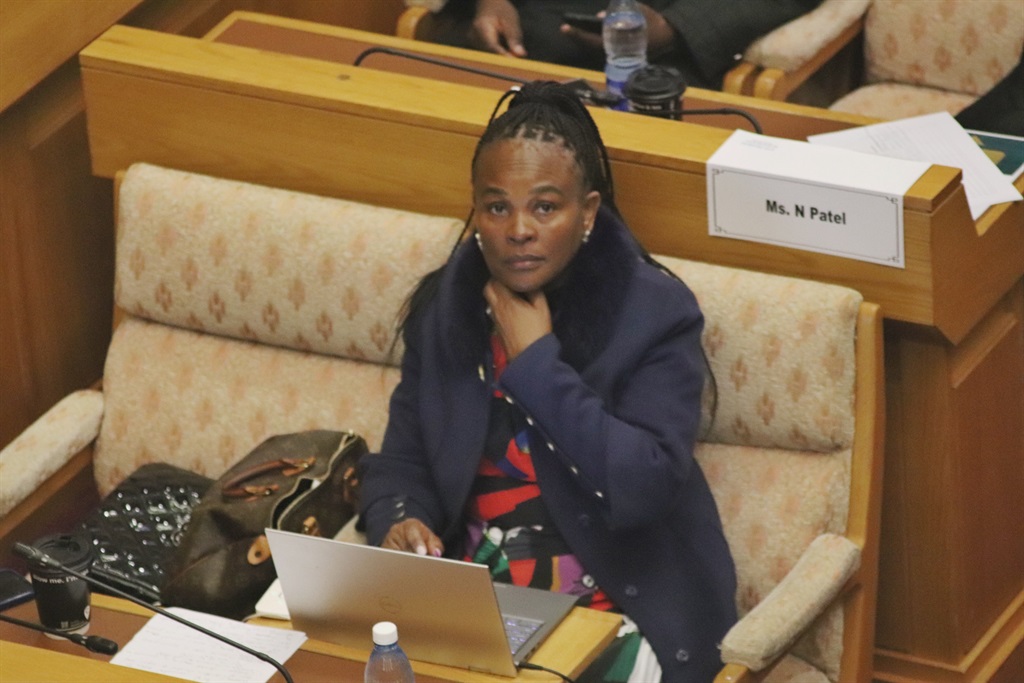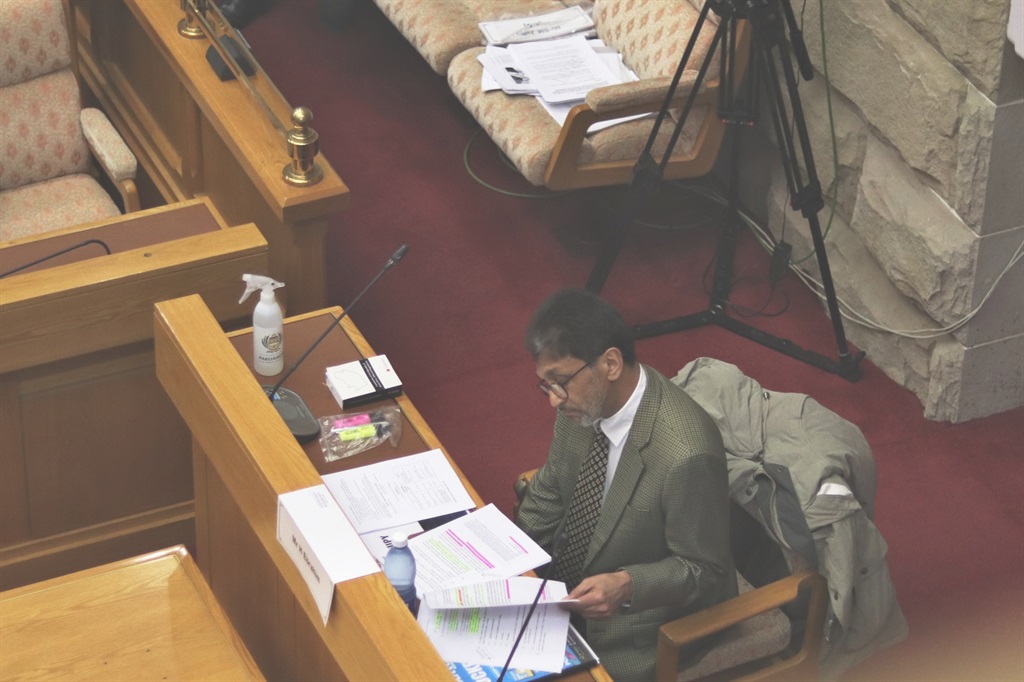
- The Public Protector must not put personal interest above the public interest, said constitutional expert Hassen Ebrahim.
- He was the first witness before the Section 194 committee handling Busisiwe Mkhwebane's impeachment.
- He said the incumbent was separate from the Office of the Public Protector.
The Public Protector must not put their personal interest above the public interest or above the interest of the Office of the Public Protector, constitutional drafter Hassen Ebrahim told the Section 194 committee on Tuesday.
Ebrahim, who was part of the Codesa negotiations and the Constitutional Assembly, which drafted the Constitution in the 1990s, and subsequently worked in several positions related to constitutions, was the first witness at suspended Public Protector Busisiwe Mkhwebane's impeachment hearings.
The hearings continued on Tuesday after the opening remarks by the evidence leader, advocate Nazreen Bawa SC, and Mkhwebane's counsel, advocate Dali Mpofu SC, on Monday.
Ebrahim was called to explain the constitutional framework of the Public Protector.
He said it was critically important that the "Public Protector is defined as an organ of state", which is required to respect the Constitution and that she doesn't assume powers she doesn't have. She should also show a "high standard of professional ethics" and use resources economically and effectively.
The Constitution and laws require the incumbent of the Office of the Public Protector to be "beyond reproach, a person of stature and suitably qualified", Ebrahim said.
Considering the Public Protector's wide-ranging powers, Ebrahim said: "Constitutionally, the Public Protector is one of those superheroes."
The chairperson of the Section 194 committee, Qubudile Dyantyi, asked: "Do you mean the office or the person?"
Mkhwebane and Mpofu shook their heads.
On Monday, Mpofu said the office and the person were inseparable.
The Western Cape High Court, however, ruled otherwise.
According to Ebrahim, it is "very important to separate the office from the incumbency", and it is very important to "protect the office from the incumbent".
Ebrahim said that, with this great power, comes great responsibility.
"The Public Protector must not put personal interest above the public interest, and must not put personal interest above the office of the Public Protector," he said.
He said the Public Protector should always act in good faith.
Ebrahim also raised a matter which could surface again later in the inquiry.
He said: "Unless there are special circumstances, as determined by the Public Protector, a matter will not be investigated 'unless it is reported to the Public Protector within two years from the occurrence of the incident or matter concerned'."
He said the high court found that, if a matter was to be accepted outside of the two-year period, the Public Protector must identify the special circumstances to justify the consideration of matters that are more than two years old.
Ebrahim also didn't downplay the gravity of the matter at hand.
"Removing the Public Protector from office is a very serious matter, not to be undertaken lightly at all. This is evident from, among other things, the significance of the role that the Public Protector plays in our constitutional democracy and the fact that such removal can only occur with, among other things, a supporting vote of at least two-thirds of the National Assembly," he said.
"In the process of discharging its function, the committee should have due regard for, among other things, the chilling effect that its decision may have on the effective exercise of the Public Protector's powers by incumbents to that office."
Mpofu's cross-examination began shortly before lunch, in which he questioned Ebrahim's expertise. He will continue in the afternoon.
The hearings will continue on Wednesday.
We want to hear your views on the news. Subscribe to News24 to be part of the conversation in the comments section of this article.


